|
As both a transgender woman and an experienced Anglican priest, it is highly disappointing to hear of the recent resolution of the Anglican Synod of Tasmania about what it calls ‘Biological Sex’. This betrays all the faults of what was a very late ‘motion without notice’: being ill-considered, under-informed and divisive, especially in its lack of attention to Anglican and other transgender people’s own well-substantiated experiences of faith and identity. For both Tasmania and the Anglican Communion are blessed with many wonderful transgender people who continue to enrich our communities and bring new life to others. What a difference it then makes when we are listened to and engaged constructively. For my own experience is that, in affirming rather than denying our authentic God-given (not human labelled) gender, transgender people are indeed so much more fully incarnate, at peace and flourishing in our skins, biology and divine purpose. Denying this not only helps maintain unnecessary suffering but restricts the love and joy we have to share within the Church and wider world. After all, St Paul (in 1 Corinthians 12) encouraged the Church, as the Body of Christ, to value its members that are weaker and shamed. This kind of action however feels more like being freshly beaten up and an attempt to cut off transgender members, our families and friends. That is not the message of God’s love that Christians have to offer the world.
The resolution also seems to reflect a recently constructed approach to the Bible which narrows God’s colourful and dynamic kaleidoscope of creation to simplistic black and white binary categories. This does not do justice to how mainstream Anglican theology has typically sought to value the rich and varied textures of the scriptures and the best of evolving human reason. Nor does it sit well with increasingly trans affirming developments in many Anglican dioceses, and other Christian congregations, schools, and agencies across Australia. I hope therefore that Anglican leaders in Tasmania will think again and not encourage their parishes, schools, and other agencies to take such an unhelpful path. The same Synod passed other resolutions making a continuing welcome commitment to addressing environmental challenges and supporting people with disabilities. These are just two of many ways in which Tasmanian Anglicans contribute positively to their communities. What a shame transgender people are not yet regarded as worthy of similar full respect and engagement. For neither trans people nor people of faith benefit from perpetuating today’s unnecessary culture wars, especially those of us who are both. Human beings have genuine differences but, as St Paul also put it, we are called to be one in Christ, in whom ‘there is no longer male and female’. We can be, and do, so much more together. The Revd Dr Josephine Inkpin was ordained in the Church of England in 1986 and has served in many capacities in Anglican dioceses in England and, since 2001, in Australia, as well as an officer of the National Council of Churches in Australia for several years. She is an associate lecturer in the University of Divinity, a member of the global network of Trans and Non-Binary Clergy of the Anglican Communion, and the current Minister of Pitt Street Uniting Church in Sydney.
1 Comment
 Firstly I acknowledge the Wurundjeri people as the traditional owners of this place, their elders past and present, and all First Nations peoples here today. I also particularly give thanks for this gathering to Garry Deverell, who, like my fellow speakers, so ‘gets’ where trans people are coming from and the urgent need for stronger intersectionality for love and justice. The great Black feminist lesbian writer and activist Audre Lorde, put it well: ‘there is no such thing as a single-issue struggle, because we do not live single-issue lives.’[1] Therefore, ‘we share a common interest… you do not have to be me in order for us to fight alongside one another. I do not have to be you to recognise that our wars are the same. What we must do is commit ourselves to some future that can include each other and to work toward that future with the particular strengths of our individual identities.’  ‘The Body doesn’t lie’, they say. Well, certainly it can powerfully reveal and prompt us to the truth. Years ago, for example, I remember a yoga teacher asking me to curl up into the foetal position and give myself a hug, expressing my love for myself. But I simply couldn’t manage it. I took up position, but my arms just wouldn’t do it. Even when I actively exercised my mind to give myself the appearance of a hug, my body would not obey. For you cannot simply command love. It has to be received, acknowledged, and embodied. Or, to put it another way, love has to be breathed in and breathed out. All of this takes us to the heart of Jesus’ teaching about the commandments (in Mark 12.28-34), and to the core of the Biblical tradition… 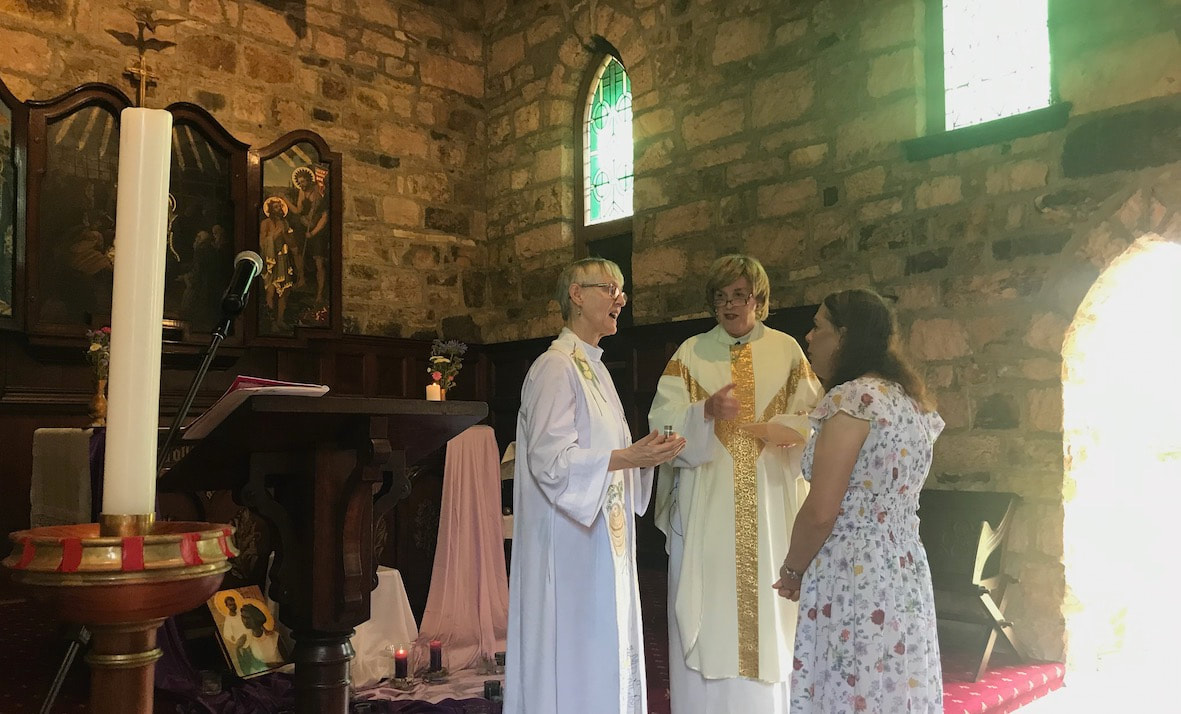 In the face of wider societal backlash, a fellow transgender Anglican priest in Australia (the Revd Sorèl Coward - pictured with my wife and I above) has been refused a license to officiate - this at a time when trans people need all the help we can get, and when we were explicitly excluded from national church ‘same sex marriage’ discussions (the ostensible reason for Sorèl’s rejection), This is such a confused decision by the Archbishop of Adelaide (who is also the Primate, i.e senior Australian bishop, of the Australian Anglican Church) that it is hard to know where to begin or end with the questions it raises. But now it is in the public sphere, I at least will ask some of them - and I hope as many people as possible will do so too. It is a direct consequence of official Church refusal to engage appropriately with the complexity of human gender and sexuality, and how little gender and sexually diverse people are even allowed to contribute our expert wisdom and experience. It is potentially another step to narrow sectarianism and such sad treatment of a lovely person who, ironically, has both the professional expertise and personal experience to help the Church grow in these matters. The affirming model of trans care is clearly vital to anyone with the eyes to see - and this certainly doesn’t involve using people’s long established loving marriages (blessed in Church for God’s sake!) against them. It is more than time for the Church and others to do all that is possible to address the deficit of transgender care and celebration. Initial coverage of this novel problematising of transgender Anglicans can be found here and here. My wife and I, as married Anglican priest in good standing, have written today to the Archbishop of Adelaide - a letter which can be found below (or downloaded here). I was told this morning that David Ould (the vocal Senior Associate Minister of the Anglican Cathedral of Parramatta) is once more writing about myself and my marriage and making statements which are a mixture of provocation and exaggeration. This is despite David never having met me, never mind talked to me about this or other things. I will not post a link as I do not like to encourage an audience for his blog. I do wish to state however that several of his statements about my Archbishop and diocese are wrong or misleading and his words should thus be treated as malicious. Sadly - as his column freely admits - such aggression is a consequence of confusion caused by the Australian Anglican Primate's recent action towards another priest (who also happens to be trans, just as some of us have other differing characteristics), particularly the Archbishop's misuse of the term 'same-sex marriage'...
One of the most encouraging aspects of the Australian theological scene is the work of the Australian Collaborators in Feminist Theologies. Based at the University of Divinity, Melbourne, this vital network has considerably inspired and supported me in recent times and will, I hope, continue to grow in strength and influence. From a transgender perspective, it is certainly a very positive community in which to be a part. Personally I am already thankful to this project and its leaders to have an essay (entitled 'From Footballs to Matildas? - Gender Diverse People and Theological Game Change') included in the forthcoming book Contemporary Feminist Theologies: Power, Authority, Love - part of Routledge's 'Gender, Theology and Spirituality' series. I am also pleased to share in the Horizons series of online conversations which the Collaborators run on a monthly basis. This month, I am myself a focal point, chatting with Dr Cath McKinney about intersectionality, not least the challenges and opportunities of gender diverse people within feminist developments (link to event here). Here below - and at this link - is a short reflection to stimulate thought and discussion, trying to move well beyond fruitless destructive controversies such as that recently stoked by J.K.Rowling. Our times, and people of all gender identities, call for genuine depth of greater connection, contemplation, and creativity...
The more I grow older, and hopefully a little deeper in understanding, the more I am aware of how religious traditions have wrestled with sexuality and gender in all kinds of extraordinary ways. For sexuality and gender have always been such powerful aspects of human lives and spirituality has therefore necessarily engaged with them as vital features of revelation and relationship, as well as repression and resistance. Sadly. so many 'sanitised' and narrowed readings of the Bible and religious traditions have significantly contributed to human distancing from intimate, celebratory and mature sexuality and gender identities. These are typically those which have much airplay today in wider media as well as conservative and fundamentalist circles. When however we look afresh at scripture and tradition, particularly through lenses of 'queer' experience, we find something very different. Some features can be quite confronting, even profoundly disturbing, full of extraordinary violence and subjugation. Some aspects can also be very different from our our contemporary contexts. Yet there are others, rightly viewed, which can help us face up to our own opportunities for growth towards richer sexual and gendered lives. They can be quite challenging but offer considerable liberative potential. Among these is the story (in Genesis 32.22-31) of Jacob's wresting with the divine, their wounding and blessing...
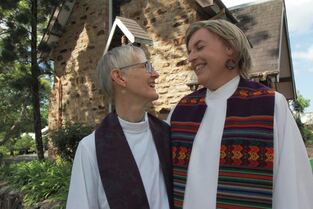 ‘I didn’t marry a gender. I married a person.’ - this has always been a truth of our marriage, before and after Josephine came out as a transgender woman. Just as God ‘looks on the heart’ not ‘outward appearance’ (1 Samuel 16.7), our gender and sexuality are not the core of our lasting relationship. What matters is the love we have for one another, part of God’s greater love. In that way, ‘rainbow marriage’ is also a gift for all... 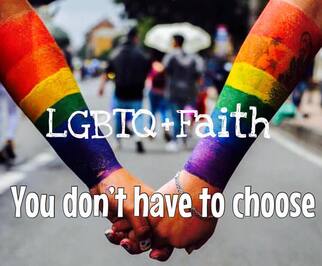 I speak today as both a proud member of our LGBTIQA+ community, and also as a dedicated person of faith, indeed as an Anglican priest. I do so, because people like me are typically erased, our lives and voices ignored. Yet we queer people of faith do exist! - and we are increasingly seeking to be visible. For our very existence gives lie to the monstrous misuse of religion for political ends. We suffer particularly profoundly from religious discrimination. We do not want religious exemptions which hurt us and others, and betray the heart of who we are. We also know that the majority of our fellow Australians of faith agree with us, as we saw in that dreadful postal survey. So we’ve tried to lobby, spoken to Government inquiries, sought to be part of desperately needed change. Yet, as queer people of faith, our rights to religious expression are seldom recognised... 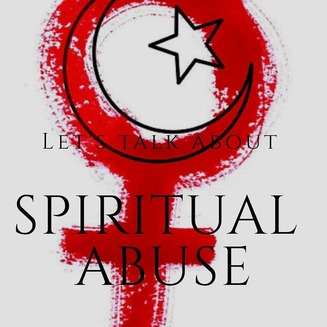 I've spent some of the night crying. For yesterday a beautiful trans man who has just come out thanked me for 'showing that I wouldn't lose God when I transitioned.' Part of me is so grateful, as sharing that truth is one of the reasons I remain, and rejoice to be, a priest. Part of me however is cut, beyond the heart, to the depths of my soul. Indeed I'm somewhat distraught, and, justifiably, not a little angry. For I've been where my friend has been traveling and it hurts. It really hurts. It is like journeying in the depths of hell. Some of us never make it through and our cries of pain continue to echo. My friend's words voice this so often hidden reality. For how dare anyone, any faith, any spiritual group, plant the thought that some of us can be cut off from the love of God, simply for being who we are created to be. Only slowly is the depth of this appalling spiritual abuse beginning to be revealed. It must not be allowed to continue. May our tears help swell the rivers of compassion and set us all free... |
AuthorThe Revd Dr Jo Inkpin: Archives
March 2024
Categories
All
|
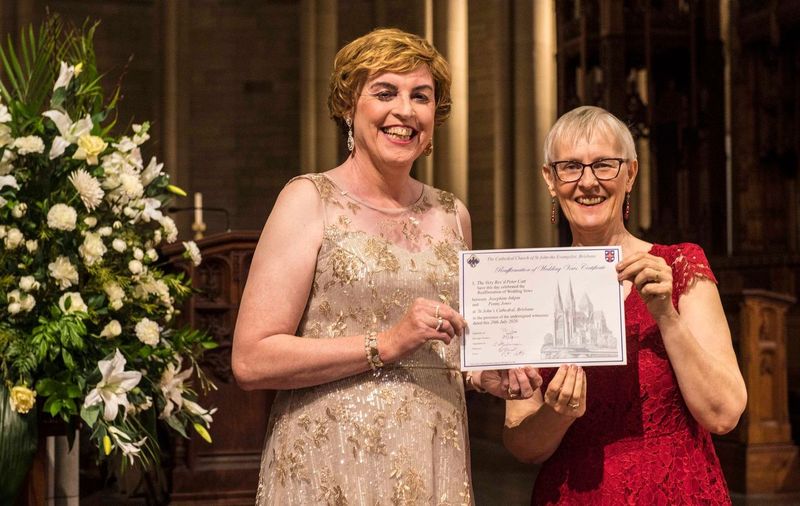
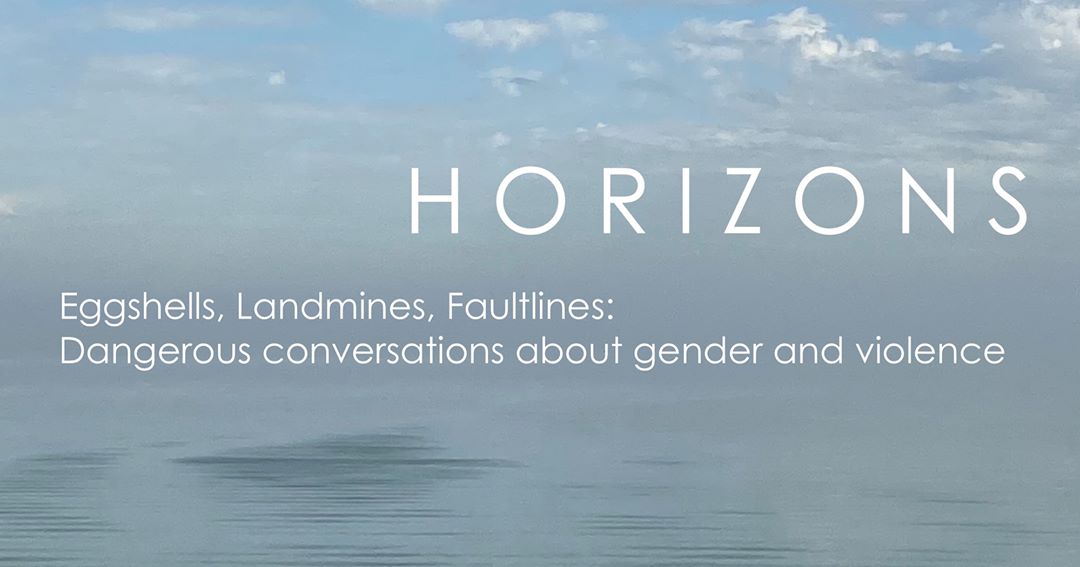
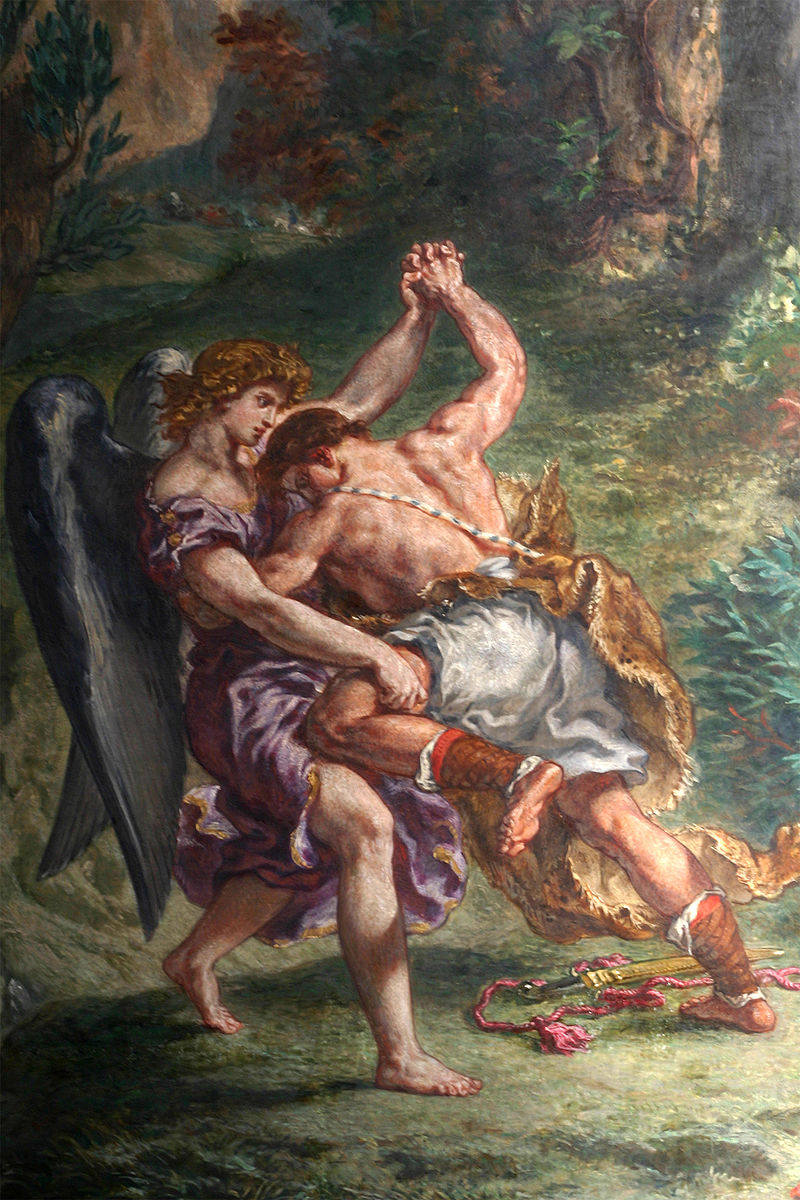
 RSS Feed
RSS Feed